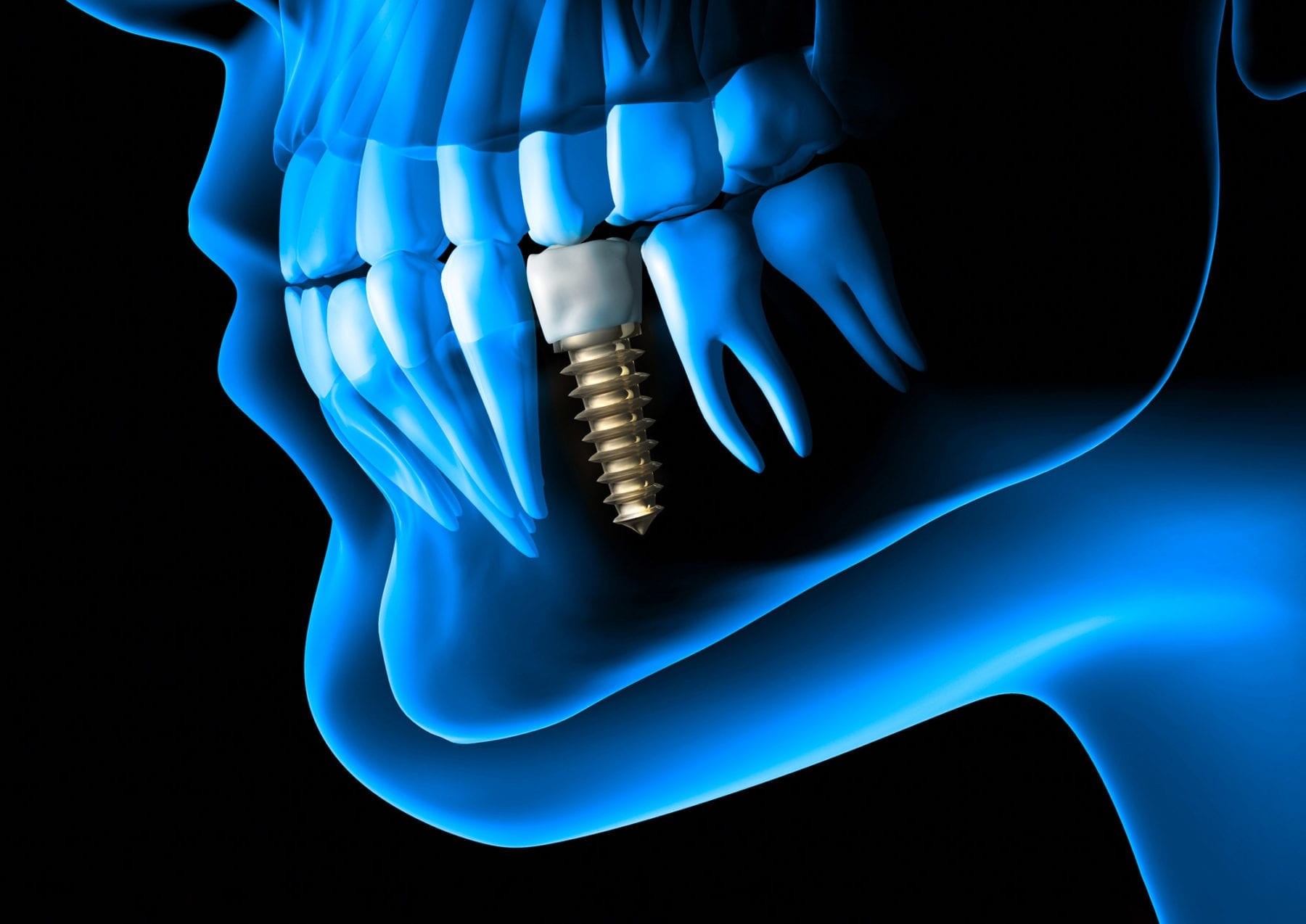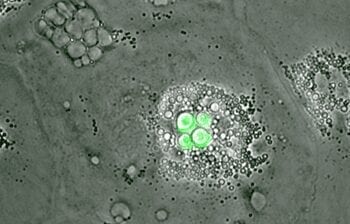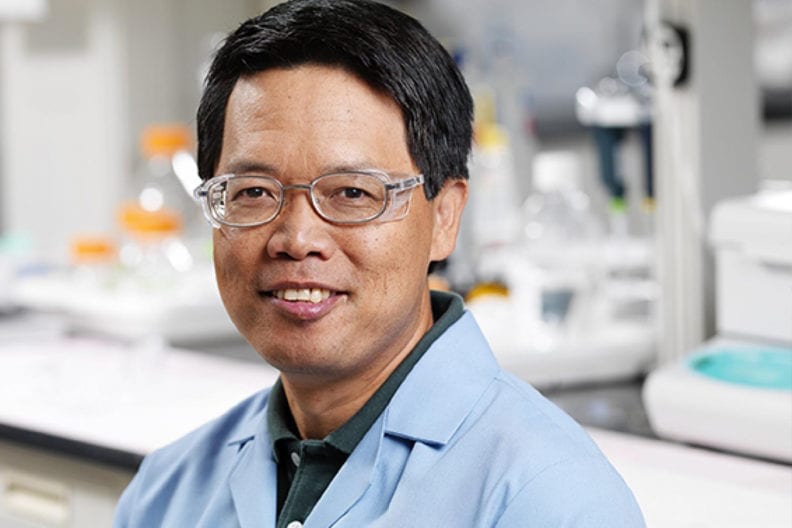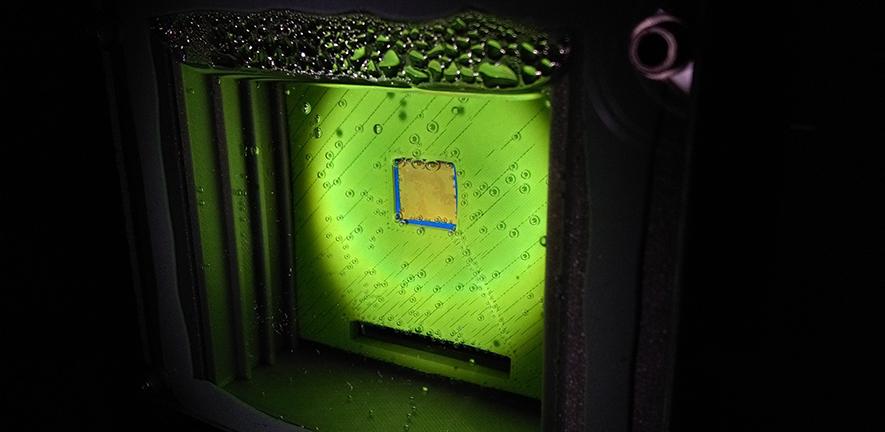
New Pitt Research Uses Electrochemical Approach to Treat Infections of Metal-Based Implants
Titanium has many properties that make it a great choice for use in implants. Its low density, high stiffness, high biomechnanical strength-to-weight ratio, and corrosion resistance have led to its use in several types of implants, from dental to joints. However, a persistent problem plagues metal-based implants: the surface is also a perfect home for microbes to accumulate, causing chronic infections and inflammation in the surrounding tissue. Consequently, five to 10 percent of dental implants fail and must be removed within 10-15 years to prevent infection in the blood and other organs.
New research from the University of Pittsburgh’s Swanson School of Engineering introduces a revolutionary treatment for these infections. The group, led by Tagbo Niepa, PhD, is utilizing electrochemical therapy (ECT) to enhance the ability of antibiotics to eradicate the microbes.
“We live in a crisis with antibiotics: most of them are failing. Because of the drug- resistance that most microbes develop, antimicrobials stop working, especially with recurring infections,” says Dr. Niepa, author on the paper and assistant professor of chemical and petroleum engineering at the Swanson School, with secondary appointments in civil and environmental engineering and bioengineering. “With this technique, the current doesn’t discriminate as it damages the microbe cell membrane. It’s more likely that antibiotics will be more effective if the cells are simultaneously challenged by the permeabilizing effects of the currents. This would allow even drug-resistant cells to become susceptible to treatment and be eradicated.”
The novel method passes a weak electrical current through the metal-based implant, damaging the attached microbe’s cell membrane but not harming the surrounding healthy tissue. This damage increases permeability, making the microbe more susceptible to antibiotics. Since most antibiotics specifically work on cells that are going to replicate, they do not work on dormant microbes, which is how infections can recur. The ECT causes electrochemical stress in all the cells to sensitize them, making them more susceptible to antibiotics.
The researchers hope this technology will change how infections are treated. Researchers focused their research on Candida albicans (C. albicans), one of the most common and harmful fungal infections associated with dental implants. But while dental implants are one exciting application for this new technology, Niepa says it has other potential applications, such as in wound dressings.
Learn more: A “Shocking” New Way to Treat Infections
The Latest on: Electrochemical therapy
[google_news title=”” keyword=”electrochemical therapy” num_posts=”10″ blurb_length=”0″ show_thumb=”left”]
via Google News
The Latest on: Electrochemical therapy
- 10 Best Online Therapy Services: Tried And Tested In 2024on May 1, 2024 at 10:05 am
The top online therapy platforms range in price, from $65 to $145 per session. Important factors to consider when selecting a provider include therapist credentials and specialities, insurance ...
- Animal-Assisted Therapyon May 1, 2024 at 5:14 am
This resident of a children's home benefits from an innovative therapy approach known as animal-assisted therapy (AAT). Steven charges at the donkeys in the pen, desperate to interact with them.
- ‘Liquid gold’ could bring new hope to multiple sclerosis patients, study suggests: ‘Profound benefit’on April 30, 2024 at 2:30 am
An experimental medication called CNM-Au8 — a drinkable liquid with gold nanocrystals — has shown promising results in clinical trials for improving MS symptoms. Doctors and researchers weighed in.
- No Antibiotics Needed – Revolutionary Chronic Wound Treatment Could Help Millionson April 28, 2024 at 1:29 am
An international team of scientists has developed a new treatment for chronic wounds that uses ionized gas to activate a wound dressing, without the need for antibiotics. The treatment involves the pl ...
- New electrochemical PGMs demand on way, iridium scarcity fears eased still furtheron April 4, 2024 at 8:50 am
“Especially in the short term, we're going to see a pretty significant increase in demand for PGMs from electrochemical processes,” said Ashley. Mattiq is developing electrochemical processes ...
- What Is Online Therapy?on February 20, 2024 at 6:59 am
Online therapy provides a convenient and often affordable way to access mental health help without requiring you to visit a counseling center or therapist’s office in person. Instead ...
- Scientists develop more effective treatment for chronic wounds with plasma-activated hydrogel dressingson February 19, 2024 at 9:26 am
"Despite recent encouraging results in the use of plasma activated hydrogel therapy (PAHT), we faced the challenge ... We have overcome this hurdle by employing a new electrochemical method that ...
- What is red light therapy and does it work?on February 24, 2023 at 8:39 am
If you’ve stumbled into red light therapy videos on social media, you have probably heard that it clears acne, de-ages skin, reduces inflammation, and heals joints. You have probably also heard ...
- What Is Therapy?on August 28, 2018 at 12:32 pm
Psychotherapy, also called talk therapy or usually just "therapy," is a form of treatment aimed at relieving emotional distress and mental health problems. Provided by any of a variety of trained ...
- Therapy: Does It Ever End?on October 10, 2017 at 1:46 pm
"You could continue to work ad nauseum on all those issues, but at some point, patients need to take what they've learned in therapy out into the community. A therapist shouldn't foster lifelong ...
via Bing News










